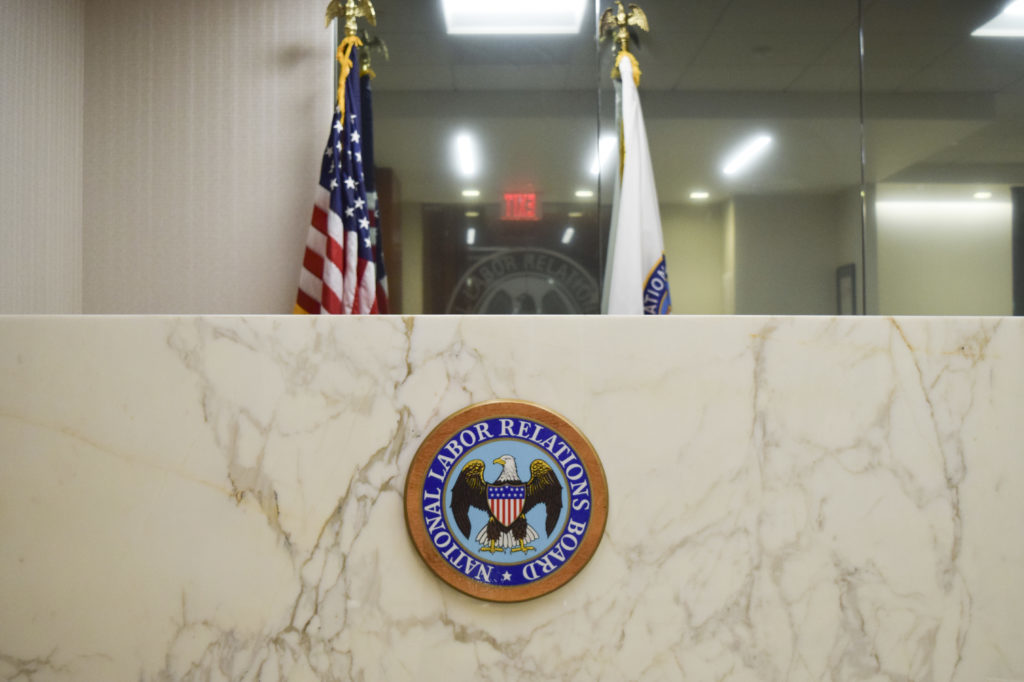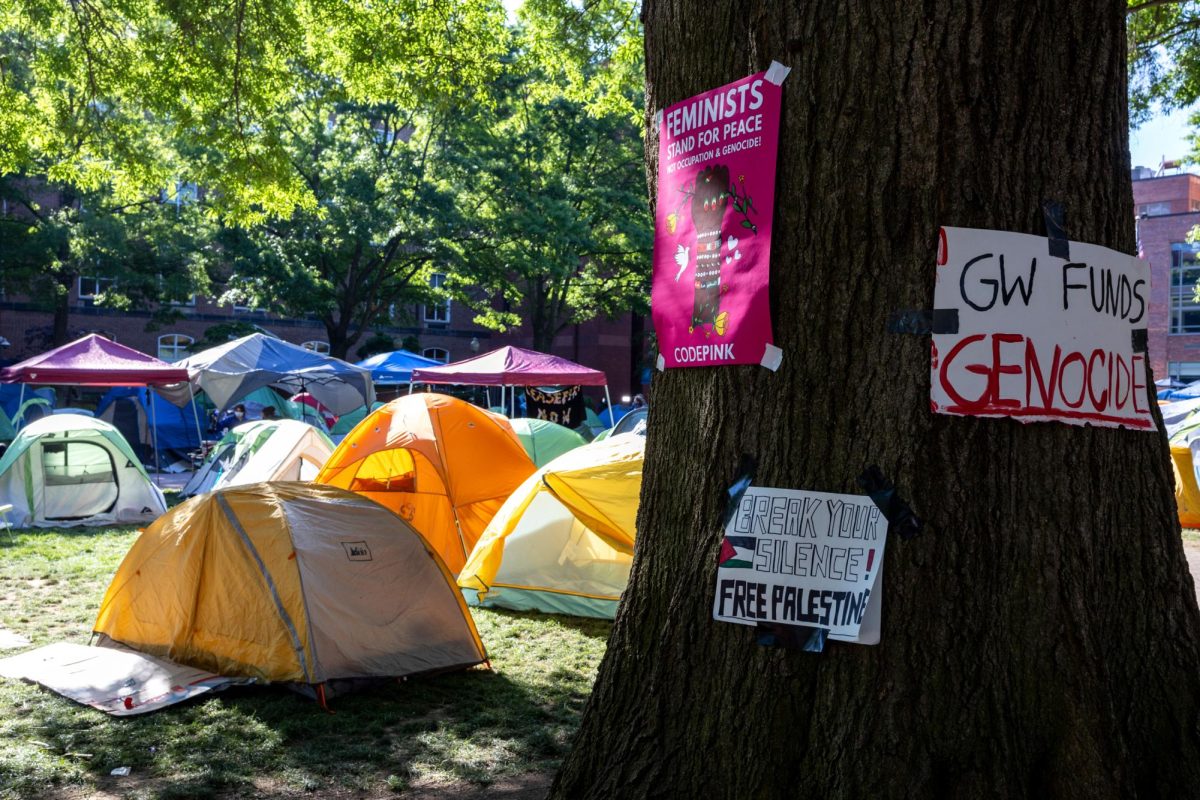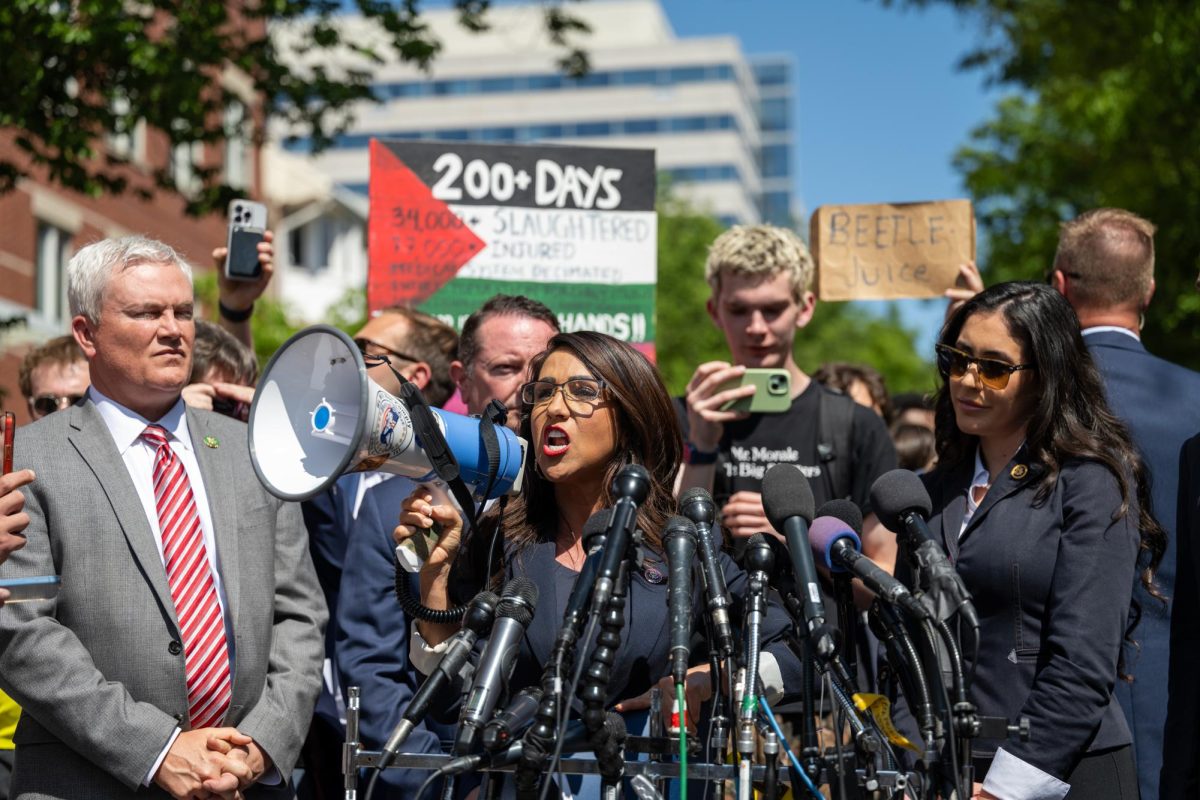Experts say the graduate student push to form a union could face one unexpected legal obstacle: President Donald Trump.
A ruling by the National Labor Relations Board last year allowing student workers at private universities to form unions was widely regarded as a groundbreaking decision that spawned unionization efforts across the country, including the one launched this week at GW. But that decision was made under a Democratic administration, and with a different president experts said there may also be a change in how aggressive the NLRB moves to green light unionization efforts, decisions that could impact the effort at GW.
In the Columbia University decision, the NLRB, a five-person federal agency, voted three to one – as it had one vacancy at the time – to consider graduate student workers as employees of their universities, protected under federal law to unionize.
Monday, the Senate voted to confirm Trump’s second nominee to the NLRB, tipping the balance of power on the Board from Democrats to Republicans, The Hill reported.
“Any person who’s anti-graduate student worker union to be in the NLRB would not be in our interests and not in the interests of workers at universities,” Scott Ross, a doctoral student in the anthropology department who helped start the graduate student effort, said.
“I think that kind of across the board, labor unions and workers, and workers in general, are maybe more in tune with one party than the other.”
Graduate student organizers released a letter Monday urging other workers to join the effort to give graduate student workers a greater say in wages and health insurance coverage.
The NLRB has a history of overturning students’ ability to organize – or giving those rights back – depending on the party of the sitting administration. The Columbia decision overturned a 2004 Brown University ruling, which under former President George W. Bush’s administration said student work was a part of the educational experience.
Before that, it was a 2000 NLRB ruling under former President Bill Clinton that declared that graduate assistants are “statutory employees” of universities and have the right to formally organize.
“I think that kind of across the board, labor unions and workers, and workers in general, are maybe more in tune with one party than the other,” Ross said.
If the Columbia decision is overturned, not only would GW graduate students lose their right to organize, effectively ending the graduate students’ campaign, but every other graduate student union across the country could also be forced to dissolve, experts said.
Mike Harper, a law professor at Boston University and an expert in labor unions, said because unionization has historically been a partisan issue, any Republican president – even if it were not Trump – would likely overturn the Columbia precedent.
“It’s quite possible that they will reverse and go back to what the Bush Board said and say to these people, ‘these graduate students are only students and not employees,’” he said.
Harper said the NLRB has become increasingly polarized over the years, making it easy to predict that Republicans will advocate for more private company rights, while Democrats will favor unionization.
“The president’s party gets, by tradition, a majority,” he said. “So although Trump will work out a compromise and there will be Democrats on the Board, they’ll be a minority, and so what will happen is, I think, the Columbia case is going to be first on the pike.”
In order to overturn the decision, a case must be brought before the NLRB contesting student unionization at a private university – something GW has experienced before.
Last year, when resident advisers attempted to unionize, University officials heavily opposed the efforts, arguing that the RAs’ work was part of their educational experience. The case made it in front of the NLRB in December, and RAs won the right to unionize in April.
Last week, University spokeswoman Maralee Csellar said graduate students contribute to GW “as part of their educational experience” and that students and faculty could be “constrained” by a union.
“You want to maintain control over your labor force and unionizing interferes with that, and contracts reset that balance of power.”
If graduate student workers petition to form a union and officials oppose the effort, experts said it’s possible that GW’s case could be the one to overturn the Columbia decision with Republicans now in charge of the Board.
Chad Montrie, a professor at the University of Massachusetts – Lowell, who once helped initiate graduate student unionization efforts at Ohio State University, said it is in the universities’ favor to overturn the Columbia decision.
“You want to maintain control over your labor force and unionizing interferes with that, and contracts reset that balance of power,” Montrie said.
But he said that even though the ability to unionize has flip-flopped over time, students have never stopped trying to unionize.
“You effectively establish the right of people to organize when the university acknowledges that the graduate students have somebody to represent them and collective bargaining and they have multiple contracts over time,” he said.
Riley Burke, Justine Coleman and Rebecca Leppert contributed reporting.





